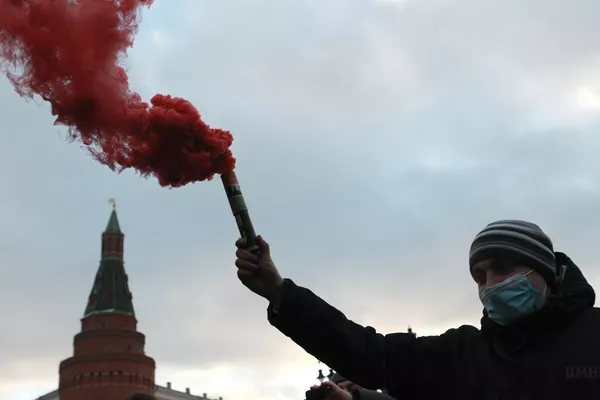Stability, which seemed quite solid in Moscow and St. Petersburg, was suddenly disrupted on Saturday, December 11, when thousands of young people staged protests, halting traffic, breaking through police cordons, fighting with police officers and destroying everything on their way. Moreover, they chanted nationalist slogans. Many people were injured in the clashes.
Many of the riots' participants and organizers were football fans, but the unrest had nothing to do with sports. It started when 3,000 football fans gathered on Kronshtadsky Boulevard, where Yegor Sviridov, a 28-year-old leader of a Spartak fan group, was shot dead on December 6. Although 3,000 is a big crowd, there was no chanting and no clashes with police.
But the gatherings on Manezh Square in Moscow and Nevsky Avenue in St. Petersburg were not peaceful at all. They looked like the classical "merciless Russian revolt" but, contrary to what poet Alexander Pushkin wrote about such revolts, they were far from meaningless.
The young people claimed they had gathered to protest against police procrastination in investigating Sviridov's murder, but the real reason for their fury runs much deeper and Sviridov's death was only the last straw.
The person accused of the murder, Aslan Cherkesov, comes from the North Caucasus. He fired the fatal shot during a brawl between football fans and a group of young people from the North Caucasus republics of Dagestan, Kabardino-Balkaria and Chechnya. They were detained but the police later released everyone but Cherkesov. It was the release of his pals that outraged the friends of Yegor Sviridov and other angry young men.
Actually, their outrage was partly justified. The troublemakers whom the police let go have since been put on the wanted list; two of them have been detained and the police will most likely find the others too. The faltering and belated police actions became a pretext for airing nationalist grievances.
An additional factor was that football fans often lean towards nationalism. Furthermore, they are not just a crowd but an organized group, which, unfortunately, can display disgraceful and aggressive behavior at times.
Rising nationalism is not unique to Russia, which is only moving in Europe's footsteps. The inflow of immigrants from developing countries and the rise of multiculturalism are engendering rejection and counteraction. Even the well-behaved Europeans are becoming intolerant and are refusing to abide by the rules of political correctness. What can you expect from Russians, who have never been too tolerant and who often reject political correctness as hypocrisy?
However, the rise of xenophobia in Russia is different from European events in that it was the local residents who held the rally in Moscow and St. Petersburg. In Europe, for example in France or the Benelux countries, it is the immigrants who stage aggressive protests. Such rallies, which sometimes take a totally unacceptable form, are usually staged by the people who feel dissatisfied with their situation in society and believe themselves to be oppressed.
There is no justification for their actions; the rally's organizers must be punished. However, it is vital to find the root causes for these protests and address them rather than just their consequences.
If thousands of people feel so offended and oppressed that they are ready to explode at the slightest provocation, as it happened in Moscow and St. Petersburg on December 11, it means that the problem must be addressed politically and economically, rather than through police action.
The views expressed in this article are the author's and do not necessarily represent those of RIA Novosti.


